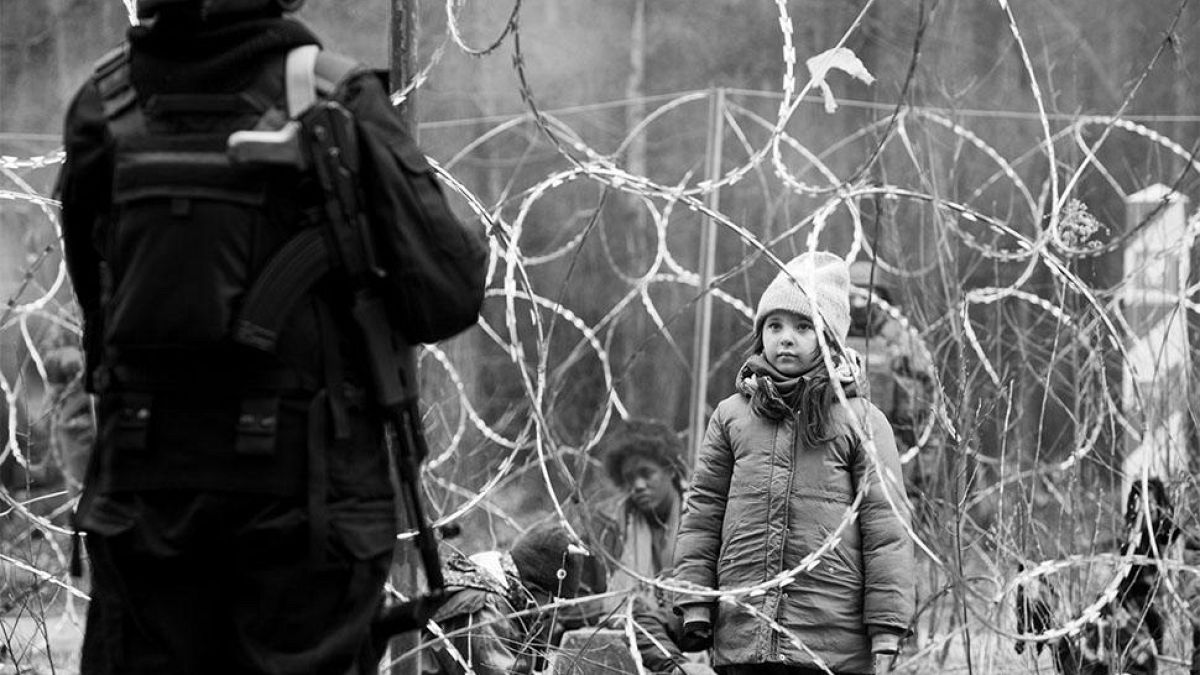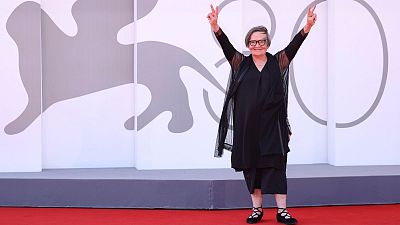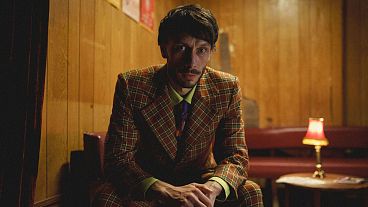An emotionally devastating indictment of a continuing EU crisis - and one of Agnieszka Holland's best films.
The title of Polish director Agnieszka Holland’s powerful new film refers to the forests that make up the no-man’s land between Belarus and Poland.
There, refugees from the Middle East and Africa desperately try to reach the European Union and find themselves trapped in an absurd to-and-fro overseen by both the Belarusian and Polish governments. Refugees are lured to the border, with the promise of safe passage to the EU. The reality is that they are political pawns in a rigged game orchestrated by Belarusian dictator Alexander Lukashenko; they are brutally evicted between the two sides, neither of which claims any responsibility and continues to condemn them to a horrifically finite in-limbo.
A Syrian family arrive to the Belarus-Poland border, led by Bashir (Jalal Altawil) and their new companion, Leila (Behi Djanati Ataï). “This route to Belarus is a gift from God,” says Bashir’s father (Mohamad Al Rashi), not knowing the horrors that await his family at the hands of Polish and Belarusian guards operating with brutal impunity.
Over the course of four chapters ('Family', 'The Guard', 'The Activists', 'Julia') and an epilogue, their story is intertwined with that of a young Polish border guard Jan (Tomasz Włosok) and the newest recruit of an activist group, the psychiatrist Julia (Maja Ostaszewska), who discovers what can and cannot be done in the so-called exclusion zone.
What follows is one of the most gripping films you’ll see all year, an incisive and cinematically powerful cri-du-coeur that gives a voice to the voiceless.
Holland says it best in her director’s notes: “We live in a world where it takes great imagination and courage to face all the challenges of modern times. The social media revolution and artificial intelligence have made it increasingly difficult for genuine voices to be heard. In my opinion, there is no point in engaging in art if one doesn’t fight for that voice, if one doesn’t fight to ask questions about important, painful, sometimes unsolvable issues that put us before dramatic choices.”
Written by Holland, Gabriela Łazarkiewicz-Sieczko and Maciej Pisuk, Green Border is based on meticulous research, including interviews with refugees, border guards and activists. This gives a raw authenticity to the performances (with Behi Djanati Ataï's Leila standing out), and further weight to Tomek Naumiuk’s superb black-and-white photography – which often has a docu composition.
Green Border recalls another Venice-premiering film, Bosnian director Jasmila Žbanić‘s Quo Vadis, Aida?, in the way Holland deftly narrows the scope of the narrative without ever diminishing the scale of the real-life atrocity. Both are devastating and compassionate films which don’t stumble into melodrama, choosing to focus instead on the shards of light desperately fighting to peek through eroded humanity.
Holland’s film occasionally stumbles, with one unnecessary scene of Jan having a solo shouting fit in his car, but the 'Guards' segment is wisely kept to a minimum. The dehumanizing treatment from the indoctrinated guards is shown with gruelling precision, to better expose the sins of those who weaponize the persecuted to antagonise the EU. And Holland does not go lightly when it comes to calling out Poland’s inhumane policies, asking vital questions about collective responsibility and inaction in a geopolitical landscape Europe – as a collective – finds itself in.
These uncomfortable questions are already being heard, as Polish Justice Minister Zbigniew Ziobro has labelled Green Border as “Third Reich propaganda.” Make of that what you will considering the xenophobic rhetoric and policies at play, but hopefully his comments – and others like it – will paradoxically drum up enthusiasm and help the film to reach a wider audience.
As for the short epilogue – set a year later in 2022 – it is the perfect way to cap off an already bracing drama. It shows in a matter of minutes that in the wake of the war in Ukraine, the very same border welcomes thousands of Ukrainian refugees. Same pain, same loss, same devastation – different skin colour. This is known, as is the fear that any of us could be next, but its inclusion assures that you’ll leave this film shaking with rage, powerlessness, but above all incapable of ignoring the sin of hypocrisy.
Green Border is not alone in this respect, as several films at this year’s Venice Film Festival have shone a light on the European migrant crisis, including Matteo Garrone’s Io Capitano and Edoardo De Angelis’ World War II drama Comandante - and its dispiriting echoes to the anti-migrant agenda in Italy under Giorgia Meloni’s far-right government. Holland’s is the strongest and most impactful of the lot, an urgent reminder of those who are still dying on Europe’s borders.
It is a vital film to screen at a major film festival, as it ensures that distribution is forthcoming. Green Border also has a very strong chance of winning this year’s Golden Lion, or at the very least the Jury Prize. Not simply because of its timely message, but because rare are films like it – or the aforementioned Quo Vadis, Aida? – that manage to so deftly blend righteous anger and intelligent filmmaking, telling a human story that doesn’t devolve into hectoring that could fuel audience fatigue when it comes to migrant narratives on screen.
Holland has proven once again that her cinematic skill and compassion hit hard; and her emotionally devastating indictment of a continuing crisis deserves all the plaudits coming its way.
Green Border premiered in Competition at the Venice Film Festival.



